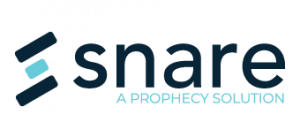Log collection and storage integrity is critical for both accurate real time threat detection and meeting compliance mandates (like PCI DSS, HIPAA, SOX, ISO27001, NIST, FISMA, NERC, etc), as well as current and evolving cyber industry standards for log storage and retention. Accurate forensic investigation cannot be done if critical event log data is missing or corrupt.
That is why Snare Central has introduced our new High Availability mode in Snare Central 8.4, enabling certainty of log collection even of your primary log collection and reporting server becomes unavailable. The Snare Collector/Reflector will automatically fail-over in this new HA mode, which means we are always collecting logs that are being forwarded for storage, analysis, and forensics.
Ensuring the integrity of log data is also critical if log data is needed as evidence in court – most likely in the event of a large scale breach. Being able to demonstrate integrity of collection means that if your log data is presented as evidence and is shown to have tamper protections, your organization will be less open to legal challenge.
The NIST Standard for log collection (NIST 800-92) states that:
“because logs contain records of system and network security, they need to be protected from breaches of their confidentiality and integrity”.
“Logs that are secured improperly in storage or in transit might also be susceptible to intentional and unintentional alteration and destruction. This could cause a variety of impacts, including allowing malicious activities to go unnoticed and manipulating evidence to conceal the identity of a malicious party. For example, many rootkits are specifically designed to alter logs to remove any evidence of the rootkits’ installation or execution.”
This is one of many reasons are why it is good security practice to store your logs on a system away from the system that generated the log data.
Snare has multiple layers of functionality to ensure log collection & storage integrity:
- High Availability mode – the Snare Central Collector/Reflector can operate in a fail-over mode to ensure logs continue to be collected even if the primary reflector/collector service is interrupted from a hardware, network or system failure.
- Mutual Authentication between Snare Agents and Snare Central/Reflector – using TLS Auth Agents and Snare Central are two communicating sides that exchange messages to acknowledge each other, verify each other, establish the encryption algorithms they will use and agree on session keys.
This ensures that logs are only collected from an authenticated and validated end point and are only sent to an authenticated and validated storage location.
- Snare Agent Heartbeat – The agent can send out regular heartbeats, letting the collecting device know that the agent is working without having to make contact. Agent logs are available, which allows the agent to send status messages to the collection device, such as memory usage, service start and stop messages, and any errors or warnings triggered during operations. Snare Central has a health checker that can report on when agents are not sending logs or not. Often clients will use the Agent Heartbeat feature to ensure that logs are sent to the system to ensure you know it is online and logging.
This is of higher importance for end points that do not generate high numbers of logs and may only generate events sporadically.
- Data Encryption – Snare is using the strongest publicly available encryption and hashing methods. It is using FIPS compliant cryptographic functions and TLS1.3 encryption. Certificate pinning and signing validation also helps to provide assurance that logs are encrypted in-transit to be kept private, to prevent tampering, and to ensure the encrypted session is a trusted path with no tampering or session highjacking.
- Event Log Caching – When the Snare Windows Agent is unable to connect to the storage and collection server, it maintains a bookmark of the last sent Windows log event and waits. The events aren’t cached separately by the Agent, but rather it waits until the server is ready before continuing to read the log and send more events through.
This means no extra space is taken up by Snare specifically for log events, rather that the space is used by the Windows event log with the cache size increased as required for long periods where the Agent cannot talk to the server.
Other Snare Agents for other Operating Systems (Linux/Unix etc) create a separate cache as needed.
Snare Central reflector has both memory and disk caches for helping to manage the log data collection. If a system is a priority destination and there is a network or server disruption on the destination it will cache logs locally and use a disk cache during a prolonged outage and the memory cache is insufficient. Once the system comes back online, the Snare Reflector will send the events to the destination and drain the local cache. The disk cache usage is fully configurable by the customer, so they can create a cache as large as they need based on their available disk to cover expected outage scenarios.
This helps to provide assurance that the log data will be collected and forwarded as soon as possible from as many systems as possible with minimal chance of log data being lost.
Separation of Duties
- Separation of Duties – configuration, security and log monitoring policy is controlled by the Agent and the Security Administrator and cannot be interfered with by the server admin. The Snare Agent logs can be stored on a Snare Central Server that has restricted access, and keeps the logs away from the system that generated them. Users don’t have access to these logs. Access is restricted to the defined admins who have console access. Access via the Agent UI does not allow any change access to the data on the server and can be restricted to privileged users. Once the logs are written to disk they never change and kept in a read only repository. The logs are hashed to monitor for changes to the storage locations or operating system components. The logs from the agents also have sequence numbers to make it easier to see if a log was missing and can also have additional hash details of each event embedded in the event to cover any potential of tampering with the content of the log before storage. All of these options help to provide assurance that the logs cannot be tampered with without some part of the integrity chain alerting to the fact.
“…having someone other than a system administrator review the logs for a particular system helps to provide accountability for the system administrator’s actions, including confirming that logging is enabled. NIST 800-92)”
The Snare Central server file and system checksum store capability can be downloaded to keep offline and burnt to DVD. This process helps to provide assurance that the logs have not been tampered with by an admin. These are automatically generated by the system health checker which can send email alerts for integrity failures. By keeping a copy of the hash details offline away from the system it can also help provide assurance and forensic details that the logs have not been tampered with and can be independently validated for forensic purposes if needed.
When the integrity of your security data is important (and its always important), Snare has you covered.
We’re Here to Help
We understand that security teams are under increasing pressure to enhance their organisation’s cyber security posture in the wake of many global cyber incidents. Contact your regional Snare office to ask how we can help or request a free trial to test Snare for yourself.

